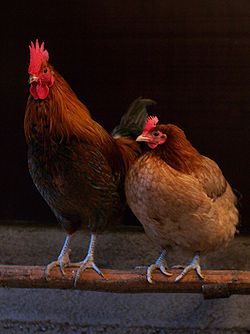Julia Whitty
Adding 2-percent fish oil in the diet of cattle reduces the amount of methane emissions out their back ends. The benefits of omega-3 fatty acids are legendary and probably inflated but in this case the effect seems positively deflationary.
According to Lorraine Lillis, speaking at the Society for General Microbiology in the UK: “The fish oil affects the methane-producing bacteria in the rumen part of the cow’s gut, leading to reduced emissions. Understanding which microbial species are particularly influenced by changes in diet and relating them to methane production could bring about a more targeted approach to reducing methane emissions in animals.”
Target away, Doctor Lillis.
Cattle, sheep, and goats fart and burp about 900 billion tons of methane a year, more than a third of total global emissions. The problem comes from the methanogen bacteria inside the guts of ruminants. These helpful bacteria enable cows and the like to digest what is essentially indigestible (cellulose). But in the process they off-gas all that methane, which is 20 times more powerful by volume than carbon dioxide at trapping solar energy.
We could attempt to cap the number of flatulent ruminants in farm production as a means to cool global warming. This approach offers many fresh benefits—especially since meat and dairy are so insanely energy intensive, even without the farting. But if reduction never happens, we could still lower methane emissions via fish oil.
Or, better yet, flaxseed oil… can Doctor Lillis look into its omega-3 powers? If flaxseed works, then we don’t have to rape the seas to feed the cows who eat the grain grown with fossil-fuel technologies only to fart the methane just so we can eat the cows and fart the methane from our meat-clogged digestive tracts… then maybe we’ll all live happily ever after.
(Burp.)














